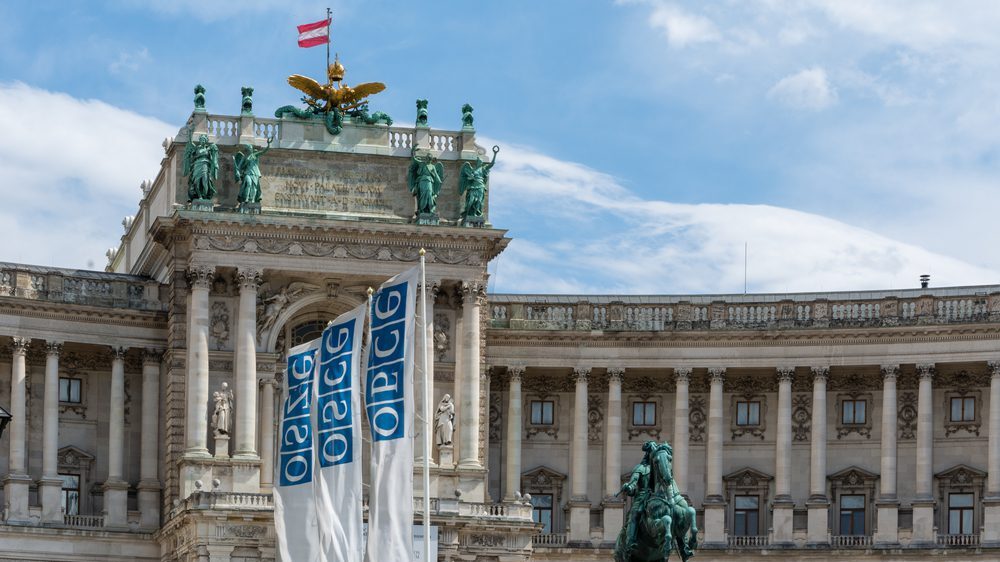
OSCE flags in front of the Austrian imperial palace, the Hofburg, Vienna.
The Ukrainian parliament has announced it will not send representatives to the upcoming winter session of the Organization for Security and Co-operation in Europe (OSCE) Parliamentary Assembly in Vienna, Austria, scheduled for later this week, February 23-24, Euractiv reported.
This decision comes in response to the presence of a Russian delegation, with Ukrainian parliamentarians concerned about the “whitewashing” of Russian war crimes. The session—which Ukrainian officials have even called for postponing—coincides with the one-year anniversary of Russia’s invasion of Ukraine.
In a letter addressed to the OSCE Parliamentary Assembly President Margareta Cederfelt, Mykyta Poturayev, leader of the Ukrainian delegation, cited the willingness of the Austrian authorities to issue visas to members of the Russian delegation as the primary reason for Ukraine’s boycott—even though Vienna only adheres to international law and the principles of its own military neutrality.
Poturayev argued that the Russian delegation would use the event to “justify aggression against Ukraine” and “whitewash war crimes and crimes against humanity committed against Ukrainians.” The Ukrainian delegation leader also hinted at support from other members, without disclosing any names.
Letting the Russian delegation participate “will undermine the integrity of the Parliamentary Assembly and compromise the clear position it has shown on Russian aggression since 2014,” Poturayev reportedly stressed in his letter.
Austrian Foreign Minister Alexander Schallenberg defended the participation of Russian delegates, stating that every relationship and conversation with Russia is difficult, but dialogue must be maintained. He expressed regret about the planned date coinciding with the anniversary of the invasion but noted that Vienna is obliged to allow all delegates from all participating states to enter the country, in line with international law.
“We have to stay in dialogue,” Schallenberg said, “because at some point, hopefully, diplomacy will be given space again.”
While parliamentarians from 20 OSCE countries urged the Austrian government to bar Russian diplomats from attending, Lithuania even threatened to boycott the meeting if Austria remains unwilling to reconsider. The Lithuanian delegation leader, Vilija Aleknaitė-Abramikienė, argued that she and her colleagues would not want to sit in a room together with people “who should be standing before a special military tribunal.”
The OSCE has been plunged into an administrative deadlock over the last 18 months due to Russia’s failure to approve budgets and mandates, among other key matters. Nonetheless, there is no existing OSCE mechanism to remove or prohibit members from participating, therefore, any move to prevent Russia from attending would likely have to involve postponements or refusals to issue visas to members of its delegation—something that Austria, an officially neutral country, has, so far, refused to do.
